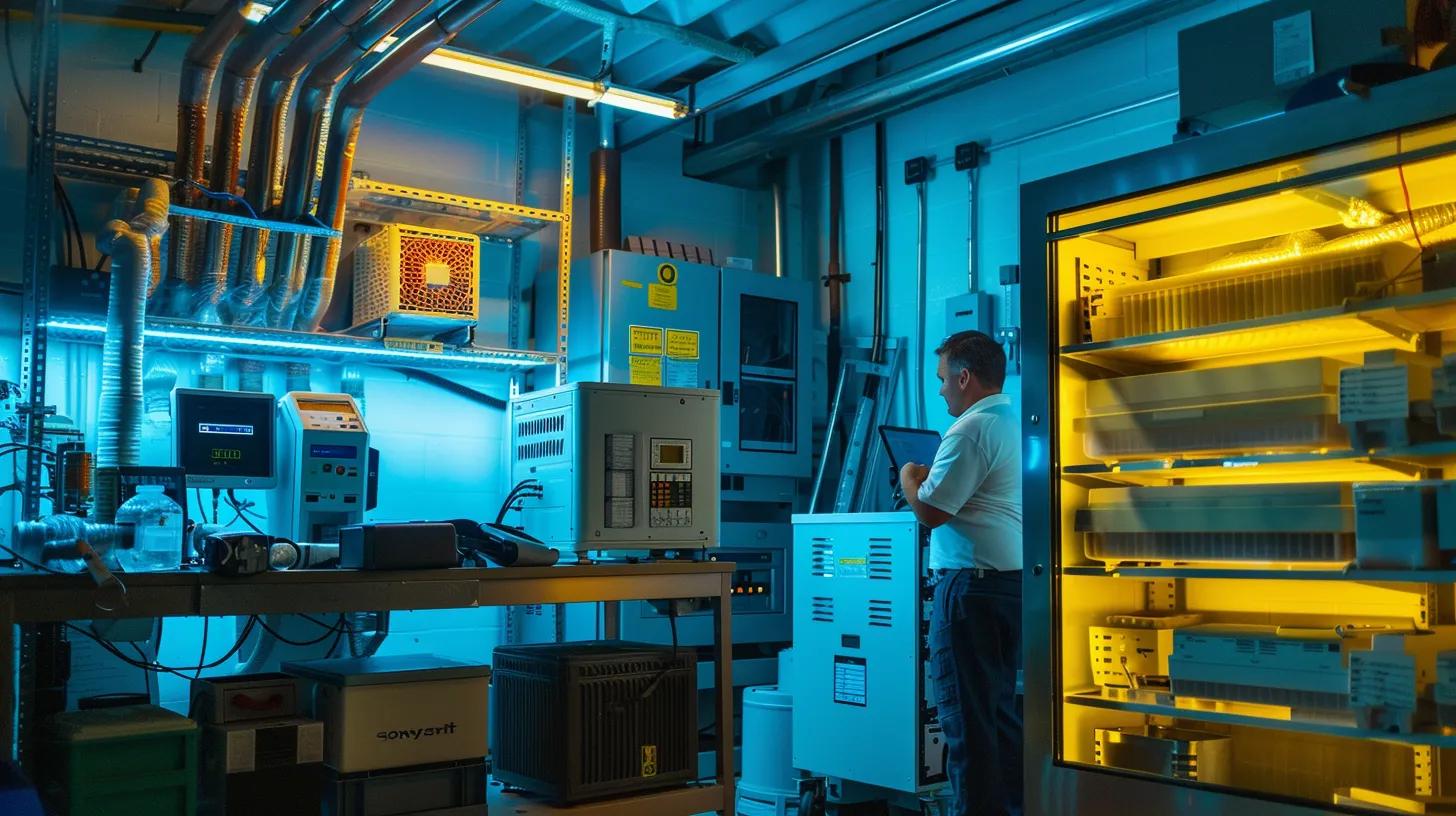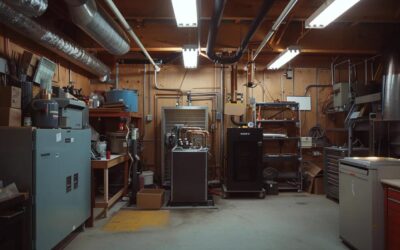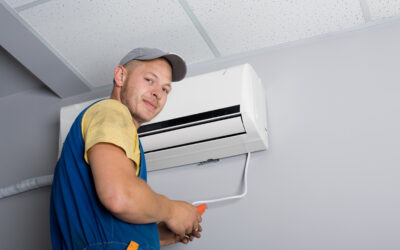Common Air Conditioning Issues You Should Know
Air conditioners are essential for providing comfort during hot weather, but they can sometimes experience issues, including instances where parts of the HVAC system may require furnace repair fort collins, that disrupt cooling performance and consumer satisfaction. This article aims to detail the most common air conditioner problems by discussing various mechanical, electrical, and installation-related issues. By understanding the typical symptoms and causes, homeowners and HVAC professionals can better diagnose and address these malfunctions. The focus is on problems such as insufficient cooling, noises, leaks, and unusual odors that may be caused by components like capacitors, contactors, or dirty air filters. Ultimately, this information empowers consumers to take proactive measures, minimize expensive repairs, and maintain indoor air quality. Let’s dive in to identify and solve common challenges that affect system efficiency and performance.
Key Takeaways
- Air conditioners can fail to power on or blow warm air due to mechanical or electrical issues.
- Poor cooling performance is often linked to refrigerant leaks, clogged filters, or thermostat malfunctions.
- Electrical faults, noises, and drainage issues require thorough professional diagnostics.
- Regular maintenance and timely filter replacement can prevent many common problems.
- Recognizing early warning signs helps reduce energy costs and extends the system’s lifespan.
Recognizing Frequent Air Conditioner Problems

When an air conditioner malfunctions, it typically exhibits common signs that indicate a potential failure. A frequent issue is when the air conditioner fails to power on. This could be due to a faulty capacitor or tripped circuit breakers that disrupt the electrical supply. Often, homeowners may notice that their AC unit suddenly stops responding, which calls for immediate checks by a qualified electrician.
Another prevalent issue is when the AC unit blows warm or hot air instead of cold air. This problem is often linked to refrigerant problems or compressor malfunctions that inhibit the cooling process. In addition, insufficient airflow from vents is a common symptom; this may result from clogged filters, debris obstructing the ductwork, or issues with the blower motor.
Water leaking from the AC unit can also be a sign of internal blockages or a damaged condensate drain pan, leading to excess moisture and potential indoor water damage. Lastly, unusual noises emanating from the air conditioner, such as rattling, buzzing, or grinding sounds, may indicate loose components or motor bearing issues that need addressing promptly to avoid further damage. These common air conditioner problems underscore the necessity for routine inspections and prompt repairs.
- Air Conditioner Fails to Power On: A failure to power on might be due to a bad capacitor or a tripped circuit breaker, causing a complete shutdown.
- AC Unit Blows Warm or Hot Air: Ineffective cooling often suggests low refrigerant pressure or issues with the compressor.
- Insufficient Airflow From Vents: Blocked air filters or debris within the ducts reduce airflow, leading to poor cooling performance.
- Water Leaking From the AC Unit: Clogged condensate drain lines or a broken drain pan can cause leakage, which may damage property.
- Unusual Noises Originating From Your Air Conditioner: Abnormal sounds such as rattling or squealing signal potential motor or component malfunctions that should be addressed immediately.
Key Takeaways: Preventing and Troubleshooting Common AC IssuesCommon Air Conditioning Issues Related to Cooling Performance
Cooling performance issues are among the most reported problems by air conditioner users. One key factor is refrigerant leaks impacting cooling capacity. When the refrigerant escapes from the system, the unit no longer has the necessary substance to absorb heat, lowering cooling efficiency significantly. This often results in poor performance even when the system is operational.
Dirty or clogged air filters restricting airflow is another major cause of inadequate cooling. Over time, dust and debris accumulate on the filter, hampering airflow and making the system work harder to achieve desired temperatures. Additionally, frozen evaporator coils can form due to low refrigerant levels or insufficient airflow, further impeding cooling functionality. Malfunctioning thermostats causing temperature inaccuracies can create a cycle of continuous running without proper temperature regulation, while an undersized or oversized AC unit for a given space may also lead to inefficient performance.
- RefrigerantLeaks Impacting Cooling Capacity: Leaks reduce the refrigerant level, causing the AC to struggle in reaching the desired temperature.
- Dirty or Clogged Air Filters Restricting Airflow: Over time, a dirty filter diminishes airflow and forces the AC to work harder, reducing efficiency.
- Frozen EvaporatorCoils Preventing Proper Cooling: Ice buildup on coils limits heat absorption and compromises cooling.
- Malfunctioning ThermostatCausing Temperature Inaccuracies: A faulty thermostat can misread room temperature, leading to inconsistent cooling.
- Undersized or Oversized AC Unit for Your Space: A unit not correctly sized for the area fails to maintain proper temperatures, resulting in high energy usage and poor performance.
Identifying Electrical Malfunctions in Air Conditioning Systems
Air conditioning systems are highly dependent on their electrical components for proper operation. One common electrical fault is capacitor failures leading to motor problems. A capacitor‘s role is crucial in providing the initial surge of energy required to start the motor, and when it fails, the motor cannot start, causing the entire unit to shut down. Similarly, a worn or damaged contactor may prevent the proper flow of electricity, inhibiting the system from working as intended.
Tripped circuit breakers or blown fuses are safety mechanisms that indicate electrical overloads or faults. Regular electrical issues might also involve wiring problems, which can create inconsistent power flow and cause erratic performance. Furthermore, issues with the blower motor operation, such as misalignment or worn-out bearings, often lead to reduced airflow and increased noise. These electrical malfunctions not only impact the AC’s performance but also pose safety hazards, and immediate professional attention is advisable.
- CapacitorFailures Leading to Motor Problems: A faulty capacitor disrupts the initial energy boost required for motor startup.
- Worn or Damaged ContactorPreventing Operation: Contactors that have degraded may stop the AC from cycling on and off correctly.
- Tripped Circuit Breakers or Blown Fuses: These indicate electrical faults that must be resolved to restore proper function.
- Wiring Problems Affecting System Performance: Poor wiring can lead to inconsistent power delivery and system instability.
- Issues With the Blower Motor Operation: Motor issues caused by misalignment or wear directly affect airflow and system efficiency.
Addressing Common Air Conditioning Issues Involving Strange Sounds or Smells
Strange auditory and olfactory signals from an air conditioner are often early indicators of underlying problems. The first noticeable symptom can be grinding or squealing sounds indicating motor bearing failure. Such noises typically stem from mechanical wear and require a prompt examination to avoid more severe damage. Additionally, banging or clanking noises from loose components may be the result of improper installation or deteriorated structural integrity within the unit.
Musty odors suggesting mold or mildew growth are also significant, as they not only reduce indoor air quality but might lead to health issues if left unaddressed. Overheated electrical parts can emit burning smells, which warn of potential fire hazards due to electrical overload or insulation failure. Clicking sounds during startup or shutdown may signal electrical relay issues or intermittent problems that can be diagnosed and fixed through proper maintenance.
- Grinding or Squealing Sounds Indicating Motor Bearing Failure: These sounds suggest wear in moving parts that need immediate repair.
- Banging or Clanking Noises From Loose Components: Such noises may indicate parts that have become detached and require tightening or replacement.
- Musty Odors Suggesting Moldor MildewGrowth: Persistent musty smells can be a sign of moisture and mold accumulation, impacting indoor air quality.
- Burning Smells Pointing to Overheated Electrical Parts: An alarming scent that warns of potential electrical failures or fire risks.
- Clicking Sounds During Startup or Shutdown: These may signal faulty relays or intermittent electrical contacts requiring evaluation.
Diagnosing Drainage Problems: A Frequent Air Conditioning Concern
Effective drainage is essential to maintaining an air conditioner’s efficiency. One common issue is a clogged condensate drain line causing water backup. When debris accumulates in the drain line, water cannot exit the unit properly, leading to potential leaks or even water damage to indoor spaces. Similarly, a full or damaged condensate drain pan may allow water to overflow and spill onto surrounding areas.
A malfunctioning condensate pump is another drainage issue. If the pump fails to operate, water accumulates, causing the unit to shut off due to safety protocols. Furthermore, incorrect AC unit installation affecting drainage can exacerbate these problems, as improper tilting or positioning disrupts the natural flow of condensate. Regular inspections of the drainage system help prevent such issues and ensure that water leaks do not compromise the unit’s functionality.
- Clogged Condensate Drain Line Causing Water Backup: Blockages in the drain line prevent efficient water removal, leading to leaks.
- Full or Damaged Condensate Drain Pan: A compromised drain pan results in water overflow and potential water damage.
- Malfunctioning Condensate Pump: When the pump fails to move water, backup issues occur, potentially triggering system shutdowns.
- Incorrect AC Unit Installation Affecting Drainage: Improper alignment or leveling during installation disrupts the natural drainage pathways.
Proactive Steps for Preventing Common Air Conditioning Issues
Preventive maintenance is key to ensuring the longevity and efficient operation of an air conditioning system. One of the best practices is to schedule regular professional maintenance checks. A certified HVAC technician can inspect all key components—from electrical connections to refrigerant levels—and perform necessary repairs before minor issues become major problems.
Consistently replacing or cleaning air filters is another simple yet crucial step. Clean filters facilitate proper airflow, reduce strain on the system, and improve indoor air quality. It is also important to keep the outdoor condenser unit clear of debris. Leaves, dirt, and other obstructions can impair the system’s efficiency, creating a cycle of poor performance and increased energy consumption.
Monitoring thermostat settings and battery life plays a significant role too. Proper calibration ensures that the system runs optimally and avoids unnecessary strain that could lead to malfunctions. Recognizing early warning signs of AC trouble, such as unusual sounds or odors, allows prompt intervention. Together, these proactive measures not only prevent common issues but also extend the lifespan of the unit and save on repair costs over time.
- Schedule Regular Professional Maintenance Checks: Routine inspections by HVAC experts ensure early detection of issues and reliable system performance.
- Consistently Replace or Clean Air Filters: Regular filter maintenance improves airflow, reduces strain on the system, and enhances indoor air quality.
- Keep the Outdoor CondenserUnit Clear of Debris: Keeping debris away from the condenser improves airflow and overall cooling efficiency.
- Monitor ThermostatSettings and Battery Life: Regular checks prevent temperature inconsistencies and prompt early intervention for potential issues.
- Recognize Early Warning Signs of AC Trouble: Identifying symptoms like unusual noises or leaks allows for timely repairs and minimizes extensive damage.
Final Thoughts
In summary, effective management of air conditioning systems starts with early identification of common problems and proactive maintenance practices. Homeowners benefit from understanding the various mechanical, electrical, and drainage issues that can compromise performance, while technicians can use this knowledge for efficient troubleshooting. Regular filter changes, proper installation, and timely professional inspections are the cornerstones of long-term reliability. By attending to these factors, one can ensure enhanced energy efficiency and prolonged comfort, avoiding costly repairs and system downtime.
Frequently Asked Questions
Q: What causes an air conditioner to blow warm air? A: Blowing warm air is often due to low refrigerant levels, compressor issues, or poor maintenance. Regular service can help maintain proper refrigerant pressure and ensure optimum performance.
Q: How important is it to replace air filters regularly? A: Replacing or cleaning air filters is critical; it preserves airflow, reduces system strain, and maintains good indoor air quality. Neglecting filter maintenance can lead to significantly reduced cooling efficiency.
Q: Why does my air conditioner make unusual noises? A: Unusual sounds such as grinding or squealing may indicate mechanical issues like worn motor bearings, loose components, or electrical problems. Professional inspection is recommended to prevent further damage.
Q: Can drainageissues affect AC performance? A: Yes, clogged drain lines or damaged condensate pans can lead to water backup, which may cause leaks and operational shutdowns. Regular maintenance of the drainage system is essential.
Q: How do I know if my AC is experiencing electrical malfunctions? A: Signs include the unit failing to power on, frequent tripping of circuit breakers, and inconsistent operation. In such cases, a professional HVAC technician should be consulted immediately to avoid potential hazards.



